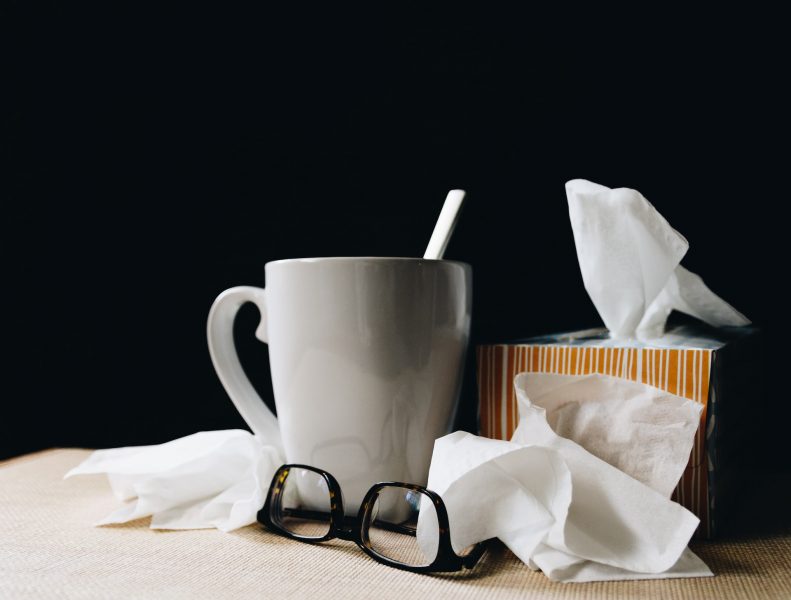Freshers’ flu: prevention, symptoms and treatment

Science Editor Daisy Scott discusses Freshers’ flu, its causes, how to prevent it, and how to make yourself feel better if you do get it.
Freshers’ flu – two words that strike fear into the hearts of all students. We all try our best to avoid it, even though catching Freshers’ flu is almost inevitable. Students are exposed to a massive number of different bacteria that other people bring to university, and frequent socialising in tight spaces helps germs spread.
Despite the name Freshers flu, it is not actually the flu, but more of a mashup between a cold and a hangover. During my time at university, I have experienced bad Freshers’ flu twice, so wanted to share some tips that I used to make myself feel better. I hope that this article can act as a guide to help you stave off the worst Freshers’ flu if you can’t avoid it!
Doing your best to prevent it
Vitamins – Vitamins are crucial for the body and give you the best chance of avoiding Freshers’ flu and remaining healthy. I recommend eating lots of fresh fruit and vegetables which are high in essential vitamins. If you’re not the biggest fan of all things green, try a vitamin supplement to give yourself a boost. Vitamin C, for example, plays a vital role in boosting the immune system which can help stave off Fresher’s flu. Vitamin E is also a great antioxidant that helps boost the body’s natural abilities to fight off infections.
Hydration – Starting university is frantic to say the least, so it can be easy to forget to drink much of anything at all. However, to keep your body functioning at its best, you need to drink a lot of fluids (preferably water).
Sleep – Although it can be tempting to stay out all night and every night during Freshers, you have to have days off to give your body time to recover. Use these nights to spend time with your flatmates and get to know them. Getting eight hours of sleep will help your body maintain peak fitness, ready for that next night out.
How to spot the early stages of it
It can sometimes be hard to distinguish the symptoms of Fresher’s flu from hangover symptoms, so make sure you are listening to your body.
Headache – This can appear very similar to what occurs with a hangover, but this is the kind of headache that lasts much longer than a hangover ever would.
Nausea or vomiting – Again, this symptom can be confused with a hangover but watch for it in combination with other symptoms from this list.
High temperature – A high fever is definitely a sign that there is something going wrong in your body.
Coughing or sneezing – It is typically a dry cough, and it can linger long after the illness has passed. My case of Freshers’ flu lasted from September to March and my friends recall that it sounded like I was coughing my lungs up…
Fatigue – The kind that makes you feel like you want to crawl into bed and never emerge again. I can attest to this first-hand as during my first-year Freshers’ flu, I was in bed for almost three days… Not an experience I want to repeat!
Aching body – This is very similar to a cold when every muscle in your body hurts.
How to get through it
If you are looking at this part of my article for advice, then you are probably experiencing a case of Fresher’s flu. I know it’s not pleasant, but it will pass; here are some tips on how to make it slightly more bearable.
Paracetamol – Stock up on paracetamol (not ibuprofen, as Freshers’ flu is not an inflammatory condition) but remember that it can only be taken every four hours. This isn’t a cure exactly, but it will reduce the pain and make it slightly more bearable.
Keep clean – Even if you are already clean in your day-to-day life, when you’re ill you have to step this up another notch. Stock up on antibacterial gel and spray and make sure you keep your hands clean to avoid spreading the germs any further.


